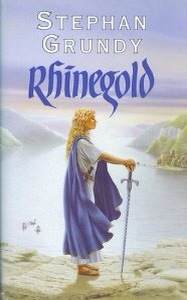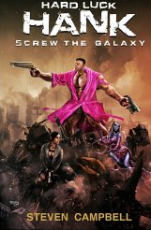Rhinegold is a saga of fate and revenge. 
The gods Wodan, Hoenir and Loki are travelling in the world of men when they accidentally kill the son of a local lord. The family demands the gods pay the murdered man’s weight in gold or be killed. The gods do pay this wergild, but the gold they hand over is cursed and will lead the victim’s relatives to sorrow and death, generation after generation. The novel describes the painful path the family must take in order to lift the curse and stop the cycle of killing.
I first started Rhinegold because I had never taken the time to learn the story of the famous hero Siegfried (Sigifrith), which makes up a major part of the novel. Having married a German, I would have said I understand the country and its culture pretty well. Rhinegold shook that belief.
There is something irrevocably alien about a woman who is party to her own children’s death because they were not courageous enough to murder their father to avenge their grandfather. Similarly, it seems particularly fickle of a god to sire a son on a line of humans and give particular members of that family favour, only to be the instigator of their doom some years later.
In general, the choices the characters make in the novel (and I assume the original story) feel horrifying or tremendously stupid, especially since the characters are generally aware of the grievous consequences that will result from their decisions. In today’s world, most of us would come to a fork in the road, see a choice and take the easier path. We would not fight in a battle where our defeat was assured.
Yet the Rhinegold characters believe firmly there is no choice: if one path would be to abandon honour and duty to kin, then it is not a possibility. Besides this, their belief is often that whatever choice is made, the end result would be the same – fate cannot be turned aside. The important thing is how a man (or woman) faces their destiny. If with courage, Valhalla awaits.
Although this ideal does make it hard to relate to the characters, there’s something very pure and gritty about it. It felt to me a little like watching a blizzard while being home and safe in bed. It is better to be living now, where we are easier on ourselves and others. The narrative also has a pleasingly circular arc such that at the end we feel we have moved back to the beginning.
I do have to admit to struggling a little – it is a rather long tome, but I am still thinking about it some weeks after finishing, so it must have been worth it. I’m going to give it a 3 out of 5.







